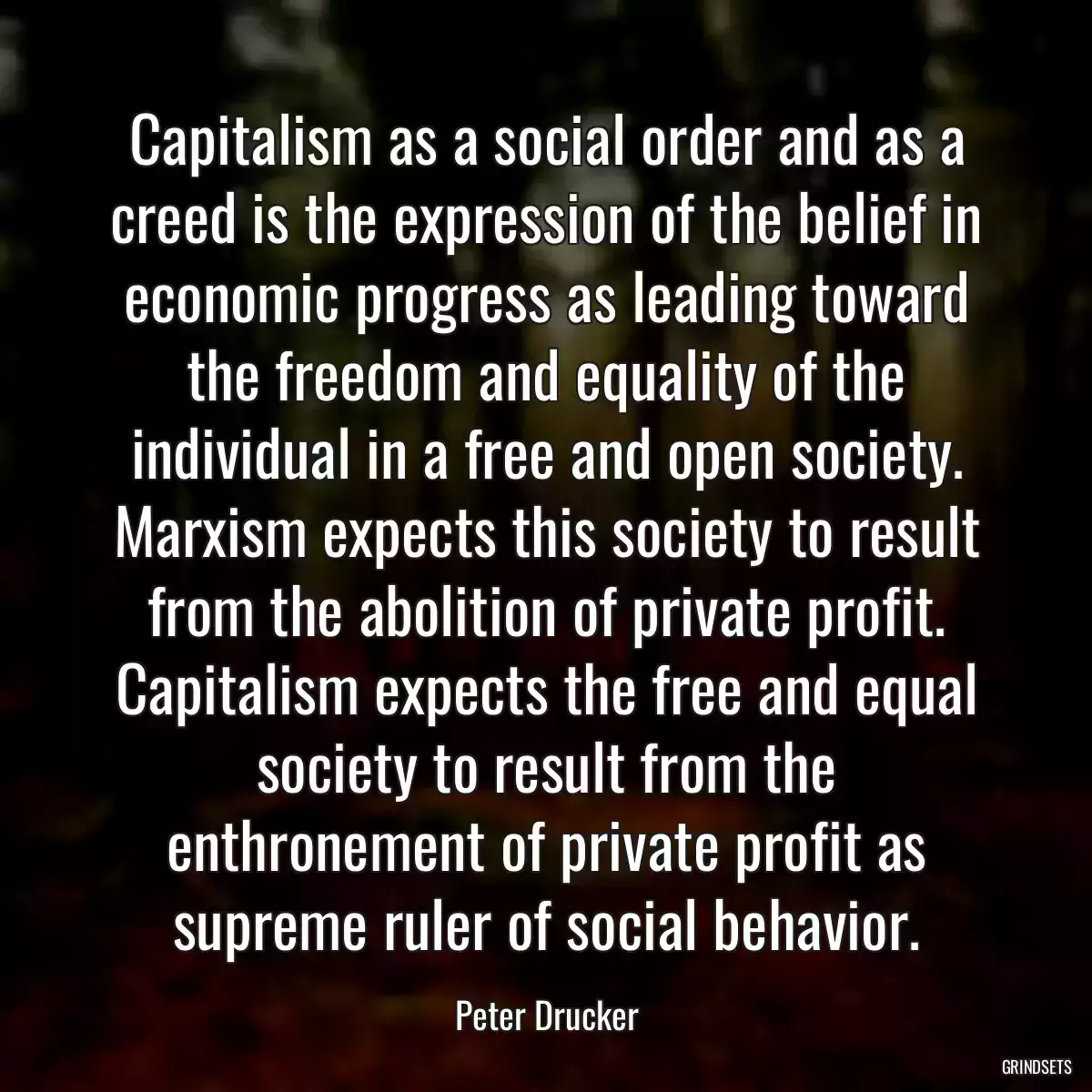
Quotes Peter Drucker - page 2
Find dozens of Peter Drucker with images to copy and share.

Many studies of research scientists have shown that achievement (at least below the genius level of an Einstein, Bohr, or a Planck) depends less on ability in doing research than on the courage to go after opportunity.
The young knowledge worker whose job is too small to challenge and test his abilities either leaves or declines rapidly into premature middle age, soured, cynical, unproductive.
Communication always makes demands. It always demands that the recipient become somebody, do something, believe something. It always appeals to motivation.
You may also like
The success and ultimately the survival of every business, large or small, depends in the last analysis on its ability to develop people. This ability is not measured by any of our conventional yardsticks of economic success; yet, is the final measurement.
Accept the fact that we have to treat almost anybody as a volunteer.
Do first things first, and second things not at all.
Do not measure your life by your goals but what you are doing to achieve them.
We know nothing about motivation. All we can do is write books about it.

The Pertinent Question is NOT how to do things right - but how to find the right things to do, and to concentrate resources and efforts on them.
It has been said, and only half in jest, that a tough, professionally led union is a great force for improving management performance. It forces the manager to think about what he is doing and to be able to explain his actions and behavior.
Keep the boss aware. Bosses, after all, are held responsible by their own bosses for the performance of their subordinates. They must be able to say: "I know what Anne [or John] is trying to do.
There are companies that are good at improving what they're already doing. There are companies that are good at extending what they're doing. And finally there are companies that are good at innovation. Every large company has to be able to do all three - improve, extend, and innovate - simultaneously.
No institution can possibly survive if it needs geniuses or supermen to manage it. It must be organized in such a way as to be able to get along under a leadership composed of average human beings.
An established company which, in an age demanding innovation, is not able to innovation, is doomed to decline and extinction.
The purpose of information is not knowledge. It is being able to take the right action.
Objectives can be compared to a compass bearing by which a ship navigates. A compass bearing is firm, but in actual navigation, a ship may veer off its course for many miles. Without a compass bearing, a ship would neither find its port nor be able to estimate the time required to get there.
You may also like

Capitalism as a social order and as a creed is the expression of the belief in economic progress as leading toward the freedom and equality of the individual in a free and open society. Marxism expects this society to result from the abolition of private profit. Capitalism expects the free and equal society to result from the enthronement of private profit as supreme ruler of social behavior.
The problem in my life and other people's lives is not the absence of knowing what to do but the absence of doing it.